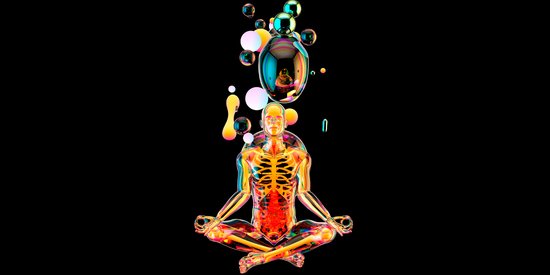What is Naturopathy? It is an alternative therapy, using various natural methods and remedies, to help heal the body, the mind and the spirit. “ A healthy mind in a healthy body.”
The WHO (World Health Organization) gives us a faithful classification of naturopathy. This is considered the 3rd most important traditional medicine in the world (abdicating in favour of traditional Chinese and Ayurvedic medicines).
This traditional medicine aims to "strengthen the body's defences by means which are considered natural and biological". This means that naturopathy is intended to help all kinds of people to move towards a "healthier" way of life, according to their personal needs.
This therapeutic practice is based on the "wholeness" of the individual. This encompasses the physical, emotional, mental, energetic, even spiritual aspects of the person. Naturopathy also seeks to heal the root cause of a problem and not just the symptoms of it. At the very heart of this way of thinking is the belief that the body and mind have all the mechanisms we need to self-heal and recover from our ailments and become stronger and more resistant to disease. These aspects are also at the very root of Ayurvedic thinking.
Origins
The ancient Egyptians and Greeks were already known to use naturopathy. In fact, the use of natural methods existed in almost every culture in the world, using the healing power of nature.
Perhaps one of the most well-known ancient naturopaths was Hippocrates, who is often referred to as “the father of medicine.” Around 400 BCE, he set down many of his practices in writing, some of which are still around today. Interestingly, our modern-day word for a doctor of “physician,” comes from the Greek word “physikos,” which means natural. The essence of Hippocratic thinking was to strengthen the body’s mechanism and in doing this, to also make it more resistant to disease. It is thanks to him that we have prognosis and clinical observation. He also categorised various diseases to understand the treatments that were needed, for example recognising the difference between a chronic disease and an infection. His treatments involved diet, exercise and herbal remedies, to seek wellness, and balance for the mind, body and spirit of his subjects.
Different Techniques
Naturopathy involves a variety of different techniques and remedies, according to the person’s needs and the reason they require treatment. This may involve looking at and regulating diet, fasting, exercise, or suggesting different solutions to help manage stress, homeopathy, herbal or natural remedies, detox cures, spinal manipulation, acupuncture and more. Guiding the patient towards self-care may also be an aspect.
It is important to understand that there is not just one kind of naturopath and that there are also many different courses to become a naturopath. This can provide issues in finding the right naturopath for your own personal needs. The accreditations to practice as a naturopath also vary from country to country.
In the United States, there is an accreditation to become a Naturopathic Physician. This is often a 4-year graduate course with diploma. Doctors who are qualified may have the accreditation of NMD or ND. However in many states, and indeed in many countries outside of the USA, it is not necessary to be accredited to become a Naturopath. Traditional naturopaths may be found who do not have a diploma, and each of these will tend to have their own “strengths”. Needless to say that if you are looking for a naturopath, it is advisable to exercise caution and properly look into their required skills and, if needs be, qualifications.
Naturopathy can be used as a treatment on its in, or in conjunction with general medicine, depending on your ailment. Bear in mind you do not need to be ill to see a naturopath, it can be an interesting visit simply for those who wish to look at a healthier way of life.









